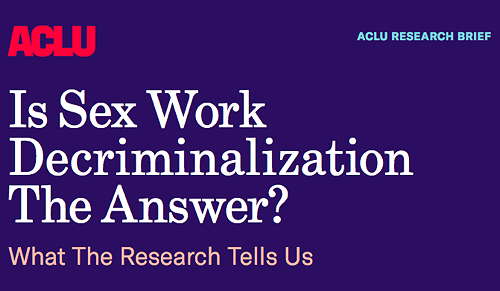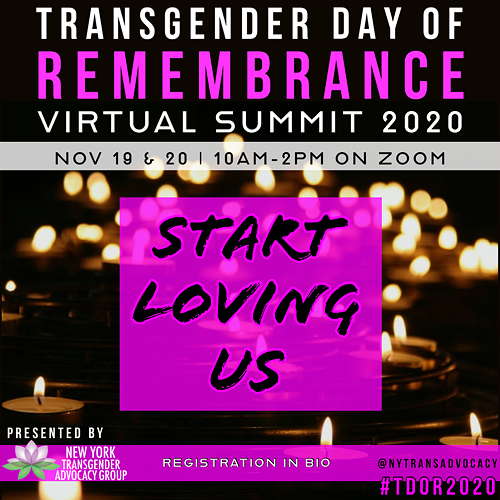October 15, 2020
DSW’s J. Leigh Brantly and Melissa Broudo spoke on a panel entitled “Fighting for Decriminalization in the Era of COVID and Black Lives Matter” at the Woodhull Freedom Foundation’s (WFF) 11th annual Sexual Freedom Summit. The event featured human rights advocates, educators and researchers, professionals, movement leaders, and organizational partners all “working towards a time when sexual freedom is fully recognized as a fundamental human right.” This year, the summit took place online, bringing attendees together virtually to explore the intersection of sexual and human rights, identify policy goals, and craft strategies moving forward. The panel contextualized the path toward decriminalization within the pandemic and a national focus on Black Lives Matter and racial justice.
Broudo and Brantly were joined by Monica Jones, a transgender and sex-worker-rights advocate and leader whose activism has shed light on the profiling of trans women of color by law enforcement across the country. The panelists highlighted the unprecedented political context that we are now operating within, and what this means for decriminalization advocacy. Broudo gave an overview of the national initiatives to support the health, safety, and human rights of sex workers. She noted that for the first time politicians are paying attention to decriminalization across the U.S.
Brantly discussed specific legislation being proposed in New England resulting from collaborations between harm-reduction organizations and sex-worker-rights advocates. The bills include the repeal of Loitering for the Purpose of Engaging in a Prostitution Offense (S.2253/A.654), also referred to as the Walking While Trans ban in NY, to combat racist and transphobic stereotyping by law enforcement; the expansion of vacatur laws protecting survivors of human trafficking; immunity from arrest for witnesses and victims of crime who are participating in sex work; and legislation to ensure that all people, regardless of profession, have access to safe healthcare.
Jones talked about her impressive work in Arizona and compared U.S. policies to places like New South Wales, Australia, and New Zealand, where sex work is decriminalized. She highlighted the incredible strides these countries have made in terms of safety and health outcomes, combating trafficking, and aiding collaboration between sex workers and law enforcement.
DSW looks forward to continuing to collaborate with WFF and others to combat the criminalization and stigmatization of sex workers and related communities. You can watch the full panel on WFF’s Facebook page and YouTube channel.

(Photo: Woodhull Freedom Foundation)

Left to right, from top: Monica Jones, J. Leigh Brantly, Melissa Broudo, and a sign language interpreter presented at the Sexual Freedom Summit via Zoom. (Photo: DSW)

DSW’s J. Leigh Brantly holds up a sign reading “Sex Work is Essential Work” as the panel comes to a close. (Photo: DSW)
DSW Newsletter #20 (November 2020)
Hero(es) of the Month: Jet Setting Jasmine and Other Sex Workers Get Out the Vote

DSW Featured at Woodhull Freedom Foundation’s Sexual Freedom Summit

ACLU Research Brief Points to Decriminalization

Mark Your Calendars

 Hero(es) of the Month: Jet Setting...
Hero(es) of the Month: Jet Setting...
 DSW Featured at Woodhull Freedom Foundation’s...
DSW Featured at Woodhull Freedom Foundation’s...
 ACLU Research Brief Points to Decriminalization
ACLU Research Brief Points to Decriminalization
 Mark Your Calendars
Mark Your Calendars
